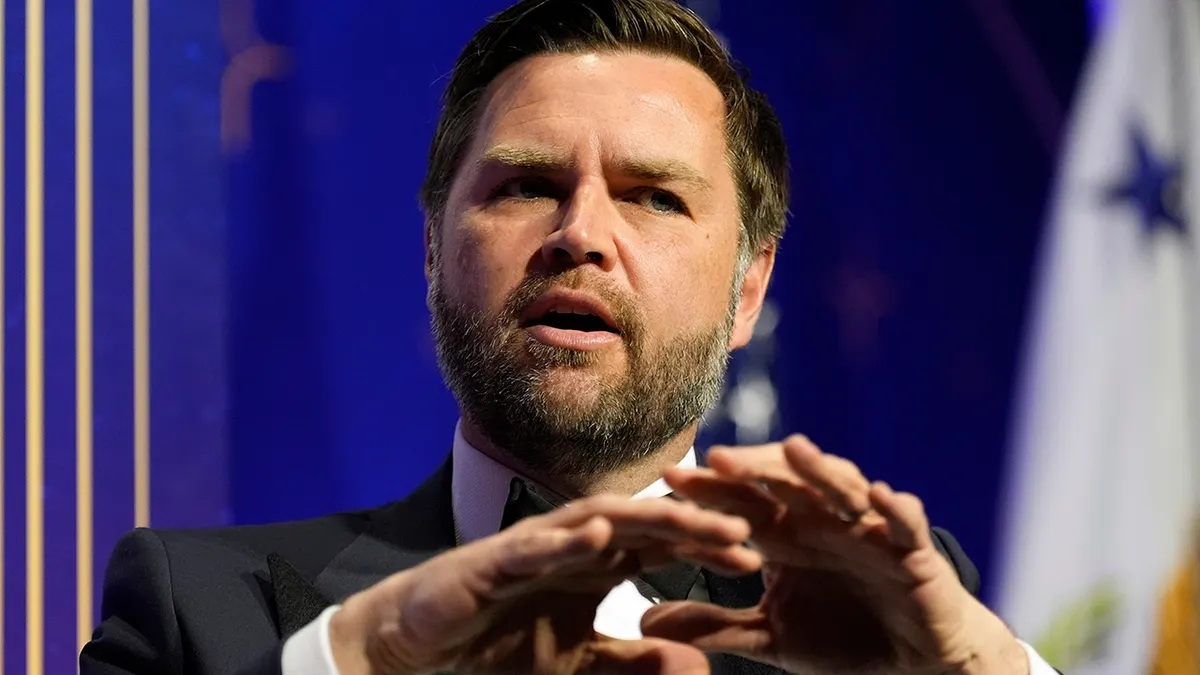U.S. Vice President JD Vance emphasized on Sunday, June 22, 2025, that the United States is not engaged in a war against Iran itself but is instead targeting Tehran’s nuclear ambitions.
His remarks, according to online media reports, came after President Donald Trump authorized a series of large-scale airstrikes against Iran’s key nuclear facilities, which Vance said had significantly delayed the country’s ability to develop nuclear weapons.
Speaking on NBC’s Meet the Press with Kristen Welker, Vance sought to clarify the U.S. administration’s position following the overnight bombing of Iran’s nuclear infrastructure, including the Fordow, Natanz, and Isfahan sites.
“We’re not at war with Iran.
We’re at war with Iran’s nuclear program,” Vance said.
He claimed the military operation had successfully set back Iran’s nuclear timeline by several years.
Vance credited the attacks, which used high-impact bunker-buster bombs, with halting Iran’s nuclear progress “for a very long time.”
He suggested that Iran now faces significant delays in any potential development of a nuclear weapon, which he described as a primary objective of the mission.
Strikes Spark Global Alarm
President Trump confirmed that he had personally made the final call to initiate the strikes, declaring afterward that Iran’s primary nuclear sites had been “obliterated.”
The strikes marked a dramatic escalation in U.S. involvement in the Israel-Iran conflict, which erupted after Israeli military action on June 13.
Trump’s administration justified the attacks as a necessary step to contain nuclear proliferation and prevent a broader regional threat.
The international response has been mixed, with United Nations Secretary-General António Guterres expressing deep concern.
He stated that he was “gravely alarmed” by the American bombing campaign, highlighting the potential for further destabilization in an already volatile Middle East.
Tehran, in turn, has vowed to defend its sovereignty and retaliate if provoked further.
Diplomacy rejected, claims Vance
Vice President Vance criticized Iran for what he described as a failure to engage in genuine diplomatic efforts.
He alleged that Iran had not negotiated in good faith during past nuclear discussions, implying that the recent military intervention was a direct consequence of diplomatic deadlock.
“We don’t want regime change,” Vance insisted during the interview.
“We do not want to protract this.
“We want to end the nuclear program, and then we want to talk to the Iranians about a long-term settlement here.”
According to him, the U.S. remains open to future dialogue, but only after Iran’s nuclear threat is eliminated.
While the United States has not received official diplomatic communication from Tehran since the strikes, Vance revealed that some “indirect messages” had been sent through intermediaries.
He added that the U.S. has no intention of deploying troops on the ground and is seeking to avoid a prolonged military engagement.
U.S. role in regional tensions
Trump indicated he would decide within the next two weeks whether to deepen direct U.S. involvement in the Israel-Iran conflict.
The conflict has unfolded against the backdrop of the wider Middle East crisis triggered by Israel’s war in Gaza, ongoing since October 2023.
Israel, believed to be the only country in the Middle East with nuclear weapons, has defended its actions by asserting the need to prevent Iran from achieving nuclear capability.
Iran, for its part, maintains that its nuclear program is peaceful and falls within the framework of the Nuclear Non-Proliferation Treaty (NPT), to which it is a signatory. Israel, notably, is not a party to the NPT.
Domestic backlash and constitutional concerns
Trump’s decision to carry out unilateral military strikes without congressional approval has stirred backlash among many Democratic lawmakers.
Critics argue that the Constitution grants only Congress the power to declare war and that Trump’s actions circumvented this authority.
In response, Vice President Vance defended the legality of the operation, stating that Trump acted within his presidential powers.
“The president had clear authority to act to prevent the proliferation of weapons of mass destruction,” Vance said, referencing legal justifications used in past administrations for similar preemptive measures.
Outlook
While the Biden-Trump transition had already strained diplomatic norms, the current administration’s decision to strike Iranian nuclear facilities signals a shift toward a more aggressive strategy.
With international diplomacy now hanging in the balance and military tensions rising, the world awaits the next steps from both Tehran and Washington.
Analysts believe the steps will be critical in determining whether the situation escalates into a broader war or returns to the negotiating table.







